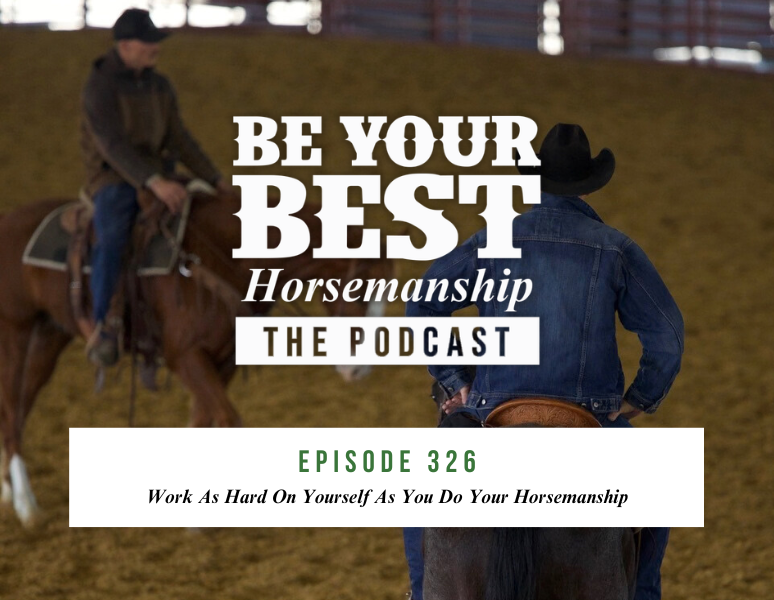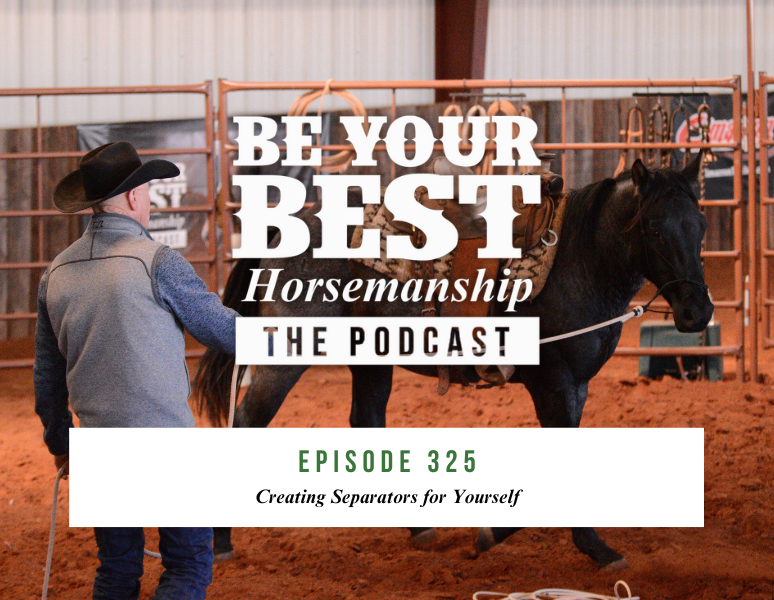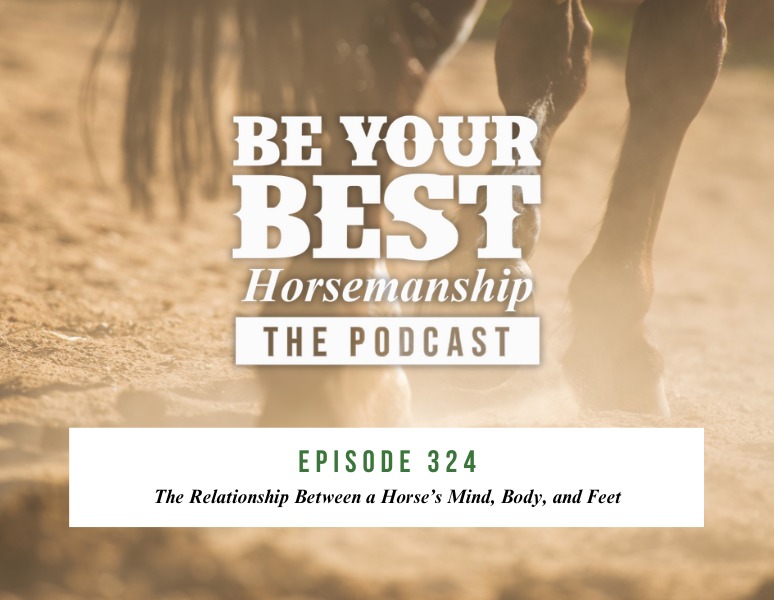Ep 13: “Good Enough” Isn’t Good Enough
“My horse is good enough.”
I can’t tell you how many times I have heard this phrase over the years as a competitor, clinician, and trainer. When we adopt the idea of being “good enough,” we are limiting our own potential, as well as our horse’s potential.
As trainers, we must eliminate the term “good enough” from our horsemanship vocabulary. Instead, ask yourself, “is my horse good, or is my horse great?”
When you strive to get your horse to that “great” level, you automatically elevate yourself as a trainer. We have passed the time when your own athletic ability can make up for a lack of horse power. Everyone’s skill level has increased so dramatically over the years that horse power is now the differentiating factor between good and great competitors.
If you are wanting to move from “good” to “great,” ask yourself: “Is it my horse’s potential that is holding me back, or is it my own?”
When you are evaluating yourself and your horse, be realistic and honest with yourself. If you make excuses for your performance, your progress will be delayed each and every time you do so.
Excuse #1: “My horse can’t run fast enough.”
I firmly believe that effort and skill can be trained into a horse. Of course, some horses will have more natural athletic ability than others; however, as trainers, our purpose is to develop each horse to its full potential. So, instead of injecting words like “can’t” into our vocabulary, we need to realize that if a horse doesn’t understand something, it is not because the horse is unable to understand. It is because we have not learned how to help our horse understand what we are asking it to do.
Excuse #2: “My horse doesn’t do well at faster speeds.”
A horse’s natural defensive mechanism is its ability to run. When horses run wild, the way they protect themselves from harm is to run away at a high rate of speed. For this reason, when we add speed to a horse’s performance, the horse naturally associates this request with the “reactive” side of its brain. This is why it is so important for your horse to have a strong understanding of fundamental exercises at slow speeds before moving on to faster speeds.
When you build your horse’s confidence at a walk/trot, your horse is going to be much less reactive at faster speeds. When your horse becomes accustomed to using the thinking side of its brain, the skills you have trained into that animal will come more naturally.
So, how do we move from “good” to “great?” Be honest with yourself about where you are at in your horsemanship journey. The people who simultaneously develop their own abilities as well as their horse’s are the ones who achieve truly great things in their careers.
“Be Your Best Horsemanship” is brought to you by Classic Equine, Martin Saddlery, Better Horses Network, Purina, Healthycoat, CINCH, Starbar, and Clarifly. These brands have been part of the Phil Haugen Horsemanship team for many years, and their products continue to play an integral role in the success of our performance horse training program. To support these brands, visit our Sponsors tab.




